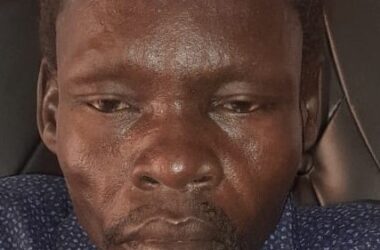
The recent appointment of Hon. Adut Salva Kiir, daughter of President Salva Kiir Mayardit, as the Presidential Envoy for Special Programs has generated mixed reactions across South Sudan.
On one hand, her rise to such a critical position is seen as a sign that the presidency is paying direct attention to the suffering of ordinary citizens.
On the other hand, the appointment has raised questions of merit, accountability, and whether this role will truly translate into improved service delivery or simply remain a political gesture.
South Sudanese citizens are weary.
Years of conflict, economic crisis, and broken promises have left millions struggling to survive.
Many communities lack access to safe drinking water, schools remain under-resourced, and hospitals often operate without medicine.
Roads are few and impassable, markets are unstable, and youth unemployment remains dangerously high.
Against this backdrop, the appointment of Hon. Adut has stirred curiosity: is this the long-awaited beginning of genuine service delivery, or yet another political maneuver that offers hope without results ?
Hon. Adut’s appointment is unique because she is not just another politician; she is the daughter of the president himself. This carries strong symbolic meaning.
It suggests that President Kiir may want his own family to be directly associated with programs that aim to alleviate suffering, as a way of demonstrating personal commitment.
This symbolism could work in her favor if her office delivers real results.
Citizens may come to see her as a channel through which their concerns reach the highest authority without bureaucratic bottlenecks.
However, it could also work against her. Many South Sudanese already express frustration at the concentration of power and resources within a small political elite.
Her appointment risks being seen as nepotistic unless she quickly proves that her role is not about privilege, but about responsibility.
The mandate of “special programs” is still broad and undefined, but the title carries weight.
In a country where traditional ministries often fail to deliver, this role could serve as a bridge between government promises and citizen needs.
Humanitarian Relief & Resilience: Providing immediate assistance to internally displaced people, returnees, and vulnerable groups.
The challenges facing Hon. Adut are enormous.
South Sudan’s governance system has been plagued by corruption, inefficiency, and weak institutions.
Past programs, including high-profile development projects, have collapsed due to poor planning and lack of oversight. Citizens still recall the “Dura saga,” the failed grain import program that drained millions of dollars without solving food insecurity.
They also point to stalled infrastructure projects, ghost schools, and empty hospitals as examples of a state failing its people.
Hon. Adut must contend with these realities.
Her greatest challenge will be to prove that her office is not another ceremonial appointment but an action oriented hub for service delivery.
Given her status as the president’s daughter, she carries both a heavier burden and a unique advantage: she has direct access to the highest office in the land, but also heightened public scrutiny.
Another key challenge is legitimacy.
While her family ties give her power, they also expose her to accusations of nepotism.
To overcome this, she will need to demonstrate professionalism, surround herself with competent technocrats, and ensure that her programs are inclusive and accountable.
Despite the obstacles, Hon. Adut’s appointment could become a turning point if approached with seriousness.
She has the opportunity to model a new kind of leadership one that values action over rhetoric.
- Direct Presidential Backing: As the daughter of the president, she has political capital to push for urgent programs that may otherwise get stuck in bureaucracy.
- Public Trust-Building: By prioritizing visible, grassroots projects such as drilling boreholes, repairing schools, or providing maternal healthcare she can quickly earn credibility.
- Partnerships: If her office works with civil society, churches, and international development partners, she could mobilize additional resources and expertise.
- Accountability as a Legacy: By adopting transparent practices, such as publishing quarterly reports and inviting independent audits, she could set a new standard for government accountability.
If she succeeds, her appointment could mark a historical moment where a member of the ruling family used their influence to bring genuine relief to citizens.
Ordinary South Sudanese citizens are not asking for luxuries they are asking for dignity.
For the farmer, this means reliable roads to transport produce to market.
For the mother, it means access to a clinic where her child can receive medicine.
For the student, it means classrooms with teachers and books.
For the unemployed youth, it means an opportunity to earn a living and contribute to society.
These are the real tests of Hon. Adut’s office. Citizens will not judge her by the title she holds or the number of meetings she attends, but by whether she can turn promises into results that touch their daily lives.
The appointment of Hon. Adut Salva Kiir as Presidential Envoy for Special Programs is both a moment of hope and a test of credibility.
As the daughter of the president, her actions will be closely watched.
Will she embody the weight of responsibility and deliver measurable services to the people ?
Or will this appointment become another example of politics overshadowing the needs of the citizen ?
For a country exhausted by conflict and broken promises, this role carries a heavy burden.
If Hon. Adut rises to the challenge, her office could become a catalyst for change, bringing much needed relief to millions and restoring confidence in governance.
But if she fails, the disappointment will run deeper than ever before.
South Sudanese are not waiting for titles they are waiting for water, health, education, and peace.
The question remains: will this appointment be the beginning of real service delivery to the suffering citizen, or just another chapter in the cycle of unfulfilled promises ?
The writer is a concerned citizen and can be reached on
Dengolesmo5@gmail.com



